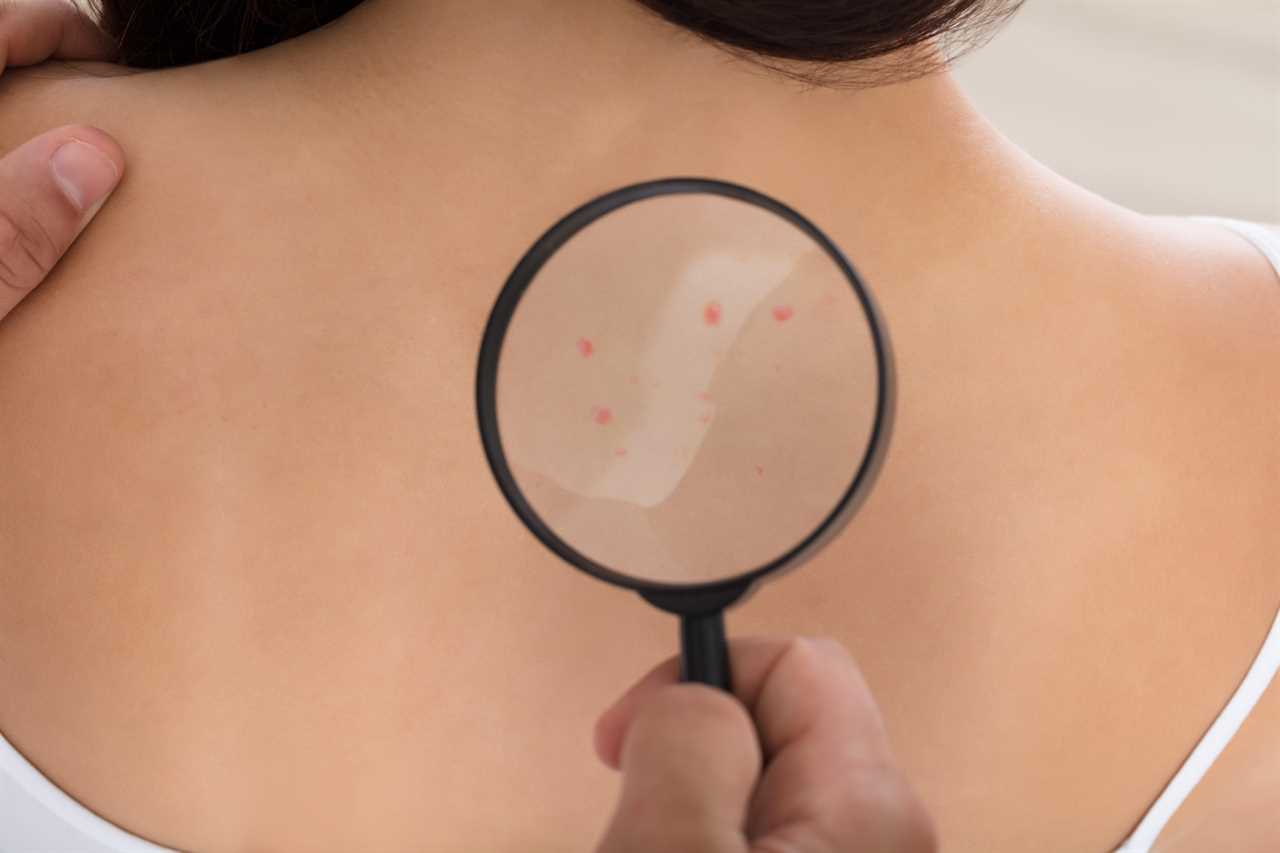AROUND 147,000 new cases of non-melanoma skin cancer are diagnosed every year in the UK, according to the NHS
Knowing the symptoms and what to look out for could save you or a loved one’s life.

Itchy skin can be one of the first signs of skin cancer to spot
What is skin cancer?
Skin cancer is a collection of abnormal cells that usually develops in areas that are exposed to sunlight.
But, it can also form in areas that aren’t exposed to the sun – although this is less common.
It occurs when damaged skin cells from sunlight or tanning beds mutate.
Or if you have genetic defects that mean skin cells multiply rapidly and form malignant tumours.
The two main types of skin cancer are defined by the cells involved, these are:
- Keratinocyte carcinoma – this category of skin cancer involves the two most common forms, basal and squamous
- Melanoma – this type of skin cancer develops from cells that give your skin colour
Skin cancer is the fifth most common type of cancer in the UK.
What are the main symptoms of skin cancer?
The first sign that you may have skin cancer is normally in the form of a lump, or a patch of discoloured skin that doesn’t go away after a few weeks.
Most of the time cancerous lumps present as red and firm and turn into ulcers, while a cancerous patch is usually flat and scaly.
You should book in to see your GP if you have any skin abnormalities that don’t heal after four weeks.
Is itchy skin a sign of cancer?
Yes, itchy skin can be the first symptom of cancer.
It might happen due to direct irritation of the skin (such as skin cancer), substances produced by a tumour or through the build-up of bile salts.
Itchy skin can be a symptom of many different types of cancer and skin conditions, so it’s hard to differentiate between each one.
But if you’re experiencing severe or prolonged itchiness with no clear cause, even if it’s not showing signs of being cancer, you should see a doctor or GP.
What is the typical treatment for skin cancer?
There are different types of treatment depending on your individual prognosis and the type of cancer you have.
Surgery is the main treatment for people with non-melanoma skin cancer, with treatment being successful for at least nine out of 10.
For other types of skin cancer, your care team may include a dermatologist, a plastic surgeon, a radiotherapy and chemotherapy specialist plus a pathologist.
They will recommend what they think is the best treatment option, but the final decision will be yours.






